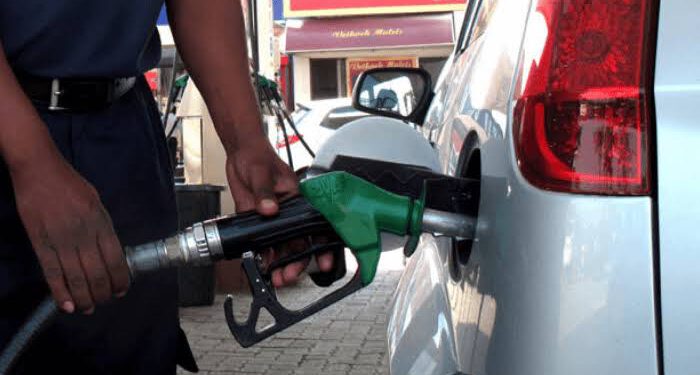By Dave Agboola
The ongoing saga of fuel pricing in Nigeria is an old tale with new actors playing their roles in a script that seems strangely predictable. Fuel station owners have consistently exhibited a glaring hypocrisy when it comes to adjusting fuel prices, a behavior that demands scrutiny and accountability. Recent events in the Nigerian fuel market, especially surrounding nationwide price changes, expose the double standards under which these operators function.
The recent decision by fuel station owners, as highlighted in the Punch newspapers on Monday, to raise petrol prices to N930 in Lagos and N960 in the north following a nationwide increase is sharply contrasted with their consistent reticence to lower prices during national downturns. This inconsistency exposes a glaring hypocrisy and raises questions about the ethics of fuel pricing in our economy.
Let’s set the stage for this conversation. Whenever there is a nationwide increase in the pump price of petrol, fuel station owners spring into action with rapid adjustments to their pricing—often raising their prices almost immediately as is the case yesterday, sometimes before the ink on the announcement has even dried. One might observe that this swift reaction implies a sense of urgency driven by market dynamics. However, this same sense of urgency vanishes into thin air when the tide turns, and the cost of crude oil or the price of petrol is reduced. They remain frustratingly slow to adjust their prices downward, and in many cases, they maintain inflated rates long after the national drop is established. This behavior starkly illustrates selective morality, where fuel station owners adeptly utilise rising prices to bludgeon consumers while remaining indifferent in scenarios favouring consumers.
Imagine a scenario where the international price of crude oil drops significantly due to surplus production or global economic shifts. Yet, instead of decreasing the cost at the pump to reflect these savings, fuel stations often maintain their inflated prices, pocketing the difference as profit. We all experienced this twice alone this year. This reluctance not only underscores the insincerity of these business practices but also raises serious questions about ethical conduct in an industry that holds so much power over the daily lives of Nigerians.
This behaviour can only be classified as hypocrisy. It seems these fuel station owners subscribe to the ‘profit over people’ manifesto, undermining the economic welfare of the average Nigerian while profits pour into their pockets.
Fuel pricing is not just a consumer issue; it transcends individual transactions and is a bellwether for the broader economy. In a country where the common citizen struggles with inflation and economic duress, the actions of fuel station owners can drive a wedge into an already strained situation. The increased cost of petrol filters through to all sectors, influencing transportation, food prices, and basic commodity costs. Consequently, when fuel prices rise, the ripple effects are felt throughout the economy.
By contrast, the hesitation or outright refusal to lower prices when costs fall contributes to a cumulative financial burden for consumers. It showcases the glaring disparity in treatment between profit maximization during cost increases and the apathy displayed during cost reductions. A responsible business ecosystem should encourage fair play, wherein the benefits of decreased costs are reciprocated to consumers for collective economic betterment.
The ramifications of this hypocrisy stretch far beyond simple economics—they touch the heart of social justice. With many Nigerians already grappling with economic hardships, the refusal of fuel station owners to lower prices in line with global market trends exacerbates an already tense situation. Transportation costs rise, goods become more expensive, and everyday people are forced to bear the brunt of a market that ostensibly lacks competitive fairness.
When fuel prices rise, we hear cries of “market forces” and “cost of goods,” but when prices fall, it appears that those very market forces become inconvenient truths that these owners can easily sidestep. This inconsistent demeanor paints a portrait of an industry not held accountable for its detrimental effects on the populace.
In essence, the recent increase in fuel prices by fuel station owners, juxtaposed against their muted reaction during national decreases, highlights an inherent hypocrisy. It illustrates a business practice grounded in opportunism rather than the purported values of sustainability and consumer care. Movements towards true ethical behavior in business must call for accountability among fuel station owners, necessitating consumer rights advocates and regulatory agencies to hold them accountable for their actions.
In navigating the turbulent waters of the economy, we must ask ourselves: will we allow these double standards to foster further injustice, or will we collectively challenge the status quo for a fairer, more equitable society? The time is ripe for each of us to demand not only fairness but also transparency from those who play a pivotal role in our lives through the hidden machinations of fuel pricing. It is only through concerted efforts that we can dismantle this hypocrisy and build a fuel market that serves all stakeholders equitably.
Indeed, the time is now for fuel station owners to be held accountable for their actions and to serve not just their profits but the public they claim to serve.
_Dave writes from Lagos State
_


















